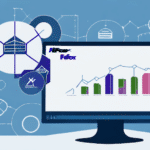Epicor ERP vs Microsoft Dynamics 365 Business Central: A Comprehensive Comparison
Choosing the right Enterprise Resource Planning (ERP) software is crucial for optimizing your business operations. Among the top contenders in the market are Epicor ERP and Microsoft Dynamics 365 Business Central. This detailed comparison examines their features, benefits, and drawbacks to help you make an informed decision.
Overview of Epicor ERP and Microsoft Dynamics 365 Business Central
Epicor ERP is a robust, industry-specific solution tailored for manufacturing, distribution, retail, and services industries. It offers comprehensive modules that cover financials, supply chain, production management, and more, making it ideal for medium to large enterprises with complex needs.
Microsoft Dynamics 365 Business Central is a cloud-based ERP solution designed for small to medium-sized businesses. It integrates seamlessly with other Microsoft products like Office 365 and Power BI, providing functionalities such as financial management, sales, service, and project management. Its scalability and user-friendly interface make it a popular choice for businesses looking to streamline their operations.
Key Features and Functionalities
Epicor ERP Features
- Comprehensive Financial Management
- Advanced Supply Chain Management
- Production and Manufacturing Management
- Project Management
- Warehouse and Inventory Control
- Human Capital Management
- Customer Relationship Management (CRM)
- Payroll Management
- Advanced Analytics and Reporting
Epicor ERP excels in providing industry-specific solutions with extensive customization options. Its advanced analytics tools enable businesses to gain deep insights into their operations, facilitating data-driven decision-making.
Microsoft Dynamics 365 Business Central Features
- Financial Management
- Supply Chain and Inventory Management
- Sales and Marketing Management
- Customer Service Management
- Project Management
- Human Resources Management
- Business Intelligence and Reporting
- Integration with Microsoft Office 365 and Power BI
- Customizable Extensions and Add-ons
Business Central stands out with its seamless integration with other Microsoft products, enhancing productivity and collaboration. Its intuitive interface is designed for ease of use, reducing the learning curve for new users.
Pros and Cons
Epicor ERP: Advantages and Disadvantages
- Pros:
- Highly customizable to meet specific industry needs
- Comprehensive feature set covering all business operations
- Strong project and financial management capabilities
- Robust customer support and training resources
- Cons:
- Steep learning curve due to complexity
- Higher implementation and maintenance costs
- May be overly complex for smaller businesses
Microsoft Dynamics 365 Business Central: Advantages and Disadvantages
- Pros:
- Cloud-based accessibility from anywhere
- Intuitive and user-friendly interface
- Seamless integration with Microsoft ecosystem
- Flexible pricing and scalable for business growth
- Quick and simplified implementation process
- Cons:
- Limited customization compared to Epicor ERP
- Not ideal for businesses with highly complex manufacturing processes
- Potential performance issues with large datasets
Pricing Plans Comparison
The cost structures of Epicor ERP and Microsoft Dynamics 365 Business Central differ significantly. Epicor ERP typically involves higher upfront costs due to its extensive customization and on-premises deployment requirements. Additionally, ongoing maintenance and support can be costly.
Conversely, Business Central offers a subscription-based pricing model, which can be more affordable for small to medium-sized businesses. The cloud-based nature of Business Central reduces the need for significant upfront investments in infrastructure.
For detailed pricing information, refer to the official Microsoft Business Central Pricing and Epicor ERP Pricing.
Ease of Use and Implementation
Epicor ERP is known for its comprehensive features, which can lead to a complex implementation process that may take several months. It often requires dedicated IT resources and thorough training for staff.
Microsoft Dynamics 365 Business Central, being cloud-based, offers a faster and more streamlined implementation process, often completed within weeks. Its user-friendly interface reduces the training time needed, allowing businesses to adopt the system more quickly.
Integration and Customization
Integration Capabilities
Epicor ERP offers robust integration options with various third-party applications, including CRM systems, e-commerce platforms, and data management tools. This flexibility allows businesses to create a unified technology ecosystem.
Business Central excels in integration with other Microsoft products such as Office 365, PowerApps, and Power BI. This seamless connectivity enhances data flow and collaboration across different business functions.
Customization Options
Epicor ERP provides extensive customization capabilities, allowing businesses to tailor the system to their specific needs. This includes the ability to add custom fields, modules, and workflows, though it may require significant development resources.
Business Central offers a range of customization options through its marketplace of extensions and add-ons. Users can easily customize forms, reports, and dashboards to fit their unique workflows without extensive coding.
Security Features
Epicor ERP incorporates robust security measures, including role-based access control, data encryption, and comprehensive user authentication protocols. These features ensure that sensitive business data remains protected against unauthorized access.
Microsoft Dynamics 365 Business Central benefits from Microsoft's advanced security infrastructure, offering features such as multi-factor authentication, data encryption, and regular security updates. Its cloud-based architecture also includes built-in compliance with various industry standards.
Scalability
Both Epicor ERP and Microsoft Dynamics 365 Business Central are designed to scale with your business. Epicor ERP's extensive feature set and customization make it suitable for businesses anticipating significant growth and requiring a highly adaptable system.
Microsoft Dynamics 365 Business Central offers scalability through its cloud-based model, allowing businesses to easily add users and functionalities as needed. Its subscription-based pricing also makes it flexible for growing businesses.
Conclusion
Choosing between Epicor ERP and Microsoft Dynamics 365 Business Central depends largely on your business's specific needs, size, and budget. Epicor ERP is ideal for larger businesses with complex, industry-specific requirements and the resources to manage a more intricate system. Business Central, on the other hand, is well-suited for small to medium-sized businesses seeking a user-friendly, scalable, and cost-effective ERP solution with strong integration capabilities within the Microsoft ecosystem.
Consider factors such as implementation time, customization needs, integration requirements, and total cost of ownership when making your decision. Both ERP systems offer robust features that can significantly enhance your business operations, so aligning your choice with your strategic goals is essential.




















